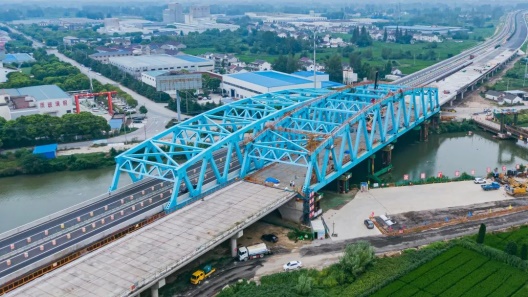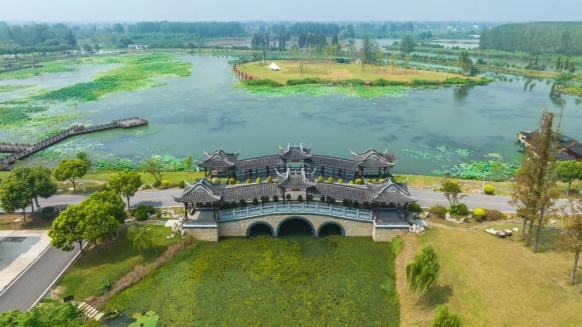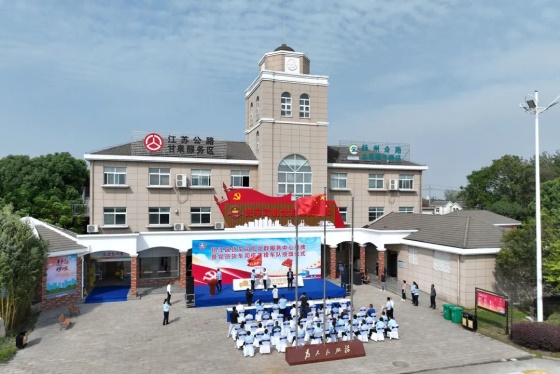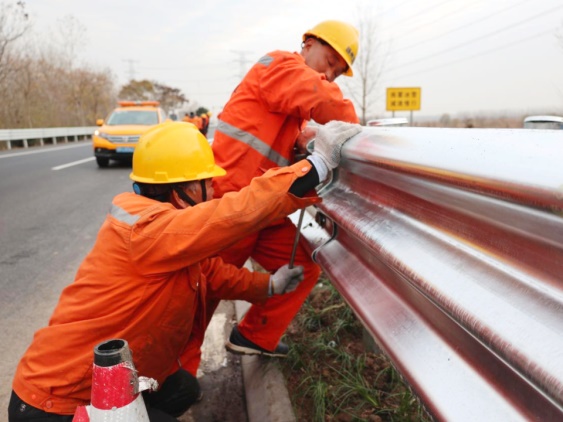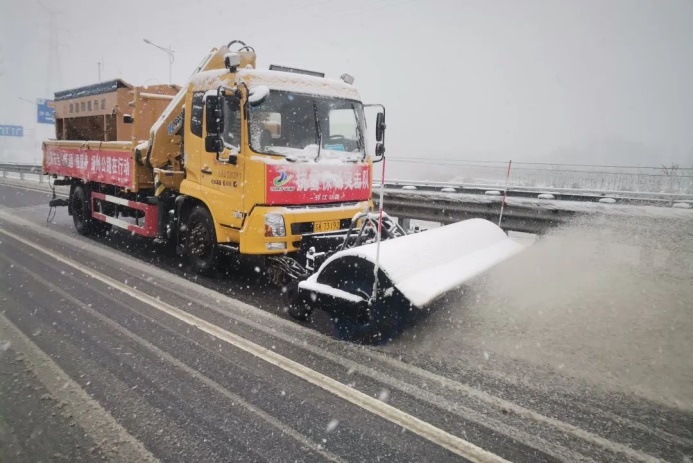Tong Liya went back to her family’s home in Xinjiang, stayed in the desert and watched the sunrise with the "little landlord"
1905 movie network news When filmmakers Yao Chen, Jing Tian, Jason Wu, etc. rushed around the country from the National Day to the National Poverty Alleviation Day for inspection, "the battle against poverty — — The Xinjiang Station of Starlight Action was officially launched on October 27th. Filmmaker Tong Liya and the "Starlight Action" project team came to Yutian County, Hotan District, Xinjiang Uygur Autonomous Region for investigation.
Overnight in primitive ancient villages
Go home with a sense of mission.
Yutian County is located in southern Xinjiang, with the Taklimakan Desert in the north and Kunlun Mountain in the south. The traffic in this area is inconvenient, but an acre of dense desert roses has grown, which has become a "flower of hope" to lead the region out of poverty.
Yutian county was once one of the 36 countries in the western regions in ancient times, and it was also an important town in the south of the Silk Road. At present, among the 250,000 people in the county, there are 32,493 poor households, and the total number of poor people is 120,000, which is a deep poverty-stricken county.
26, Tong Liya came to Hotan area. Growing up in Xinjiang, she came to southern Xinjiang for the first time in more than 30 years. Knowing the customs of ethnic minorities, she specially brought a lot of gifts in Urumqi, ready to give them to local villagers. That evening, Tong Liya and his team came to Daliyabuyi village near the desert.
On the way to Daliyabuyi village, Tong Liya, a Xinjiang child who has never been to southern Xinjiang, was particularly excited. She said that she especially hopes to communicate with local villagers, and she also hopes to feel their living standards and understand their needs at night in their homes.
Daliyabuyi village is an oasis called "Taklimakan navel". It takes a long time to drive from Hotan, and the last section of the road is directly through the desert without roads.
In this village with full ethnic customs, villagers lit bonfires to welcome Tong Liya. That night, she stayed at the home of a fellow villager. There was a 7-year-old girl named Dalia in this family.
Seeing Dahlia, Tong Liya took out a small schoolbag she brought as a gift. Dahlia took it and held it tightly in her arms. When getting ready for bed at night, Tong Liya asked her, would you like to sleep with me? Dalia, the "little landlord", nodded and then got into her mother’s quilt.
In the morning, with little Dahlia, Tong Liya came to the desert to watch the sunrise. They walked through a small meadow and went to a small sand dune to watch the sunrise. The sun reflected their faces, and Tong Liya raised her mobile phone and took a photo with Dahlia, which made this desert look particularly gentle.
When she left the village, little Dahlia, who had become good friends with Tong Liya, seemed reluctant to part. When getting on the bus, Tong Liya asked her, "I’m leaving. Will you give me up?" Dalia said, "I don’t want to." At a young age, she is completely relying on emotional instinct to answer Tong Liya’s words. Tong Liya asked her again, "Would you like to come to Beijing with me?" When he heard the willing answer, Tong Liya smiled and looked a little nostalgic.
She posted this experience on the Weibo and wrote: "We all like the sunrise in the wilderness of our hometown. I returned to my hometown this time. In addition to my familiarity, I also have a sense of mission on my shoulders. I hope I can contribute to the work of poverty alleviation in this land. I hope that every child in this sunshine can grow up healthily and happily! "
Along the way, Tong Liya lamented that he had come to southern Xinjiang for the first time for so many years: "As a Xinjiang native, I have never been to southern Xinjiang for more than 30 years. I hope I can do more. More interaction and more understanding. " Talking about her experience of staying in the desert overnight, she talked about an old man she met: "An old man got into our car, grabbed my hand and began to cry. I’m really glad you came here. You must visit my new house. This is their current life, the change from the original village to here. "
These relocation resettlement houses are practical things that the local government has done for Daliyabuyi village. Before seeing the house, Tong Liya was also worried that the relocation would make the villagers unwilling to leave the village where their ancestors lived. When she saw a new house with a clean kitchen and hot water, she felt: "What the government is doing now really benefits the people."
Visit ten thousand mu rose field
Enter the farmer to experience the craft and dance Xinjiang dance together.
On the afternoon of 27th, Tong Liya and his party drove to the rose planting base on the edge of the desert. As one of the main local cash crops, roses not only bring considerable economic benefits to Yutian County, but also are effective vegetation for sand prevention and fixation, bringing good ecological benefits to the local area.
The average income of roses planted in Yutian county is about 4000 yuan per mu, and the high quality can reach 10000 yuan. During the inspection, the local government introduced to Tong Liya that 5 mu of land has been specially allocated to each poor household to grow roses. This rose field is also a response to the call for precise poverty alleviation. In six years, it has changed from a desert to a flower field.
After the inspection of Rose Base, Tong Liya and his team came to a local family in Yutian County. Before I entered the yard, I could hear the sound of national music. In the yard, fellow villagers showed Tong Liya the process of drying roses and their own hand-made rose sauce. Along with the music, Tong Liya, the daughter of Xinjiang, also danced a national dance with the local girls.
Praise Xinjiang’s infrastructure is improving day by day.
Call for active ecological protection of ancient villages
In the courtyard, Tong Liya, deputy secretary of the county party committee in Yutian County, Hetian District, Xinjiang Uygur Autonomous Region, and county magistrate Ai Reti Yunus, secretary of the Party Committee of the Bureau of Culture, Broadcasting and Television Wang Shuhua, research specialist Zhou Yan of Starlight Action and Li Haiming, head of the leading rose industry enterprise in Yutian County, sat on the bed of Uygur people and shared their feelings of poverty alleviation.
Talking about Daliyabuyi village, which stayed overnight the night before, Tong Liya learned that the villagers had been resettled in resettlement houses 92 kilometers away, and the original village was included in the key development projects of the National Tourism Administration. What Tong Liya cares about is whether the ecological protection will keep up after it becomes a tourist attraction.
"All the sand is particularly clean, and the naan buried in the sand can be eaten directly. I’m afraid that after a large number of tourists go in, there will be a lot of mineral water bottles and plastic bags. What about ecology? How do you solve this thing? " Talking about his own experience, Tong Liya asked.
According to the relevant staff of the local government, people stationed in the reserve will be educated on environmental protection, and tourists will be informed of ecological garbage and prohibited regulations that affect environmental protection. "We should appeal to everyone to abide by it and not to destroy our environment." Tong Liya also said that as a public figure, he would definitely appeal to everyone to pay attention to the environment.
During this visit to southern Xinjiang, Tong Liya not only felt that the infrastructure was getting better and better, but also found that compatriots of all ethnic groups in Xinjiang spoke Chinese better and better, and the communication was very smooth: "When I lived in Xinjiang more than ten years ago, the popularity of Chinese was very low. But I saw yesterday that no matter how big or small, I can speak Chinese, which is very powerful. " Before leaving, she wanted to hire an interpreter, and she had no worries at all.
Zhou Yan, a colleague, said that the problem of tourism resources in Yutian County now is that tourism information can’t go out, which is also the bottleneck of many poor counties. He mentioned that it is now very fast to see the progress of the work, and it took almost one year to complete the work for 10 years.
Tong Liya recalled his visit to Yutian County, and felt that local cadres were the main force in poverty alleviation: "There are many cadres who are also contributing to poverty alleviation. They are also the main poverty alleviation force in Xinjiang. " Recalling her conversation with Dalia, the "small landlord" who stayed in Daliyabuyi village overnight, Tong Liya talked about herself and asked her, "What is your dream?" The answer is that the little girl wants to be a teacher.
Through the fight against poverty — — "Starlight Action" visited and inspected Yutian County in Hotan area, and Tong Liya exerted the influence of filmmakers, which made the local characteristic agricultural products exposed to a greater extent, and also made the tourism information of southern Xinjiang transmitted to more places from the northwest of the motherland. Growing up in Xinjiang, she returned to Xinjiang and got in close contact with the local people. The roses blooming in the desert will eventually become the local rich flowers, which are particularly charming.
"Fighting poverty — — The whole activity of "Starlight Action" was broadcast exclusively by JD.COM, and supported by e-commerce platform for poverty alleviation. The whole event was sponsored by Huawei bracelet B5.



